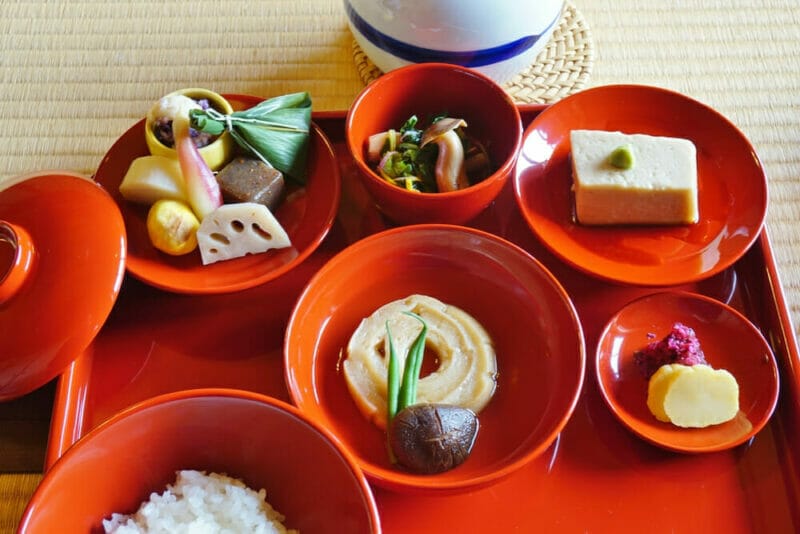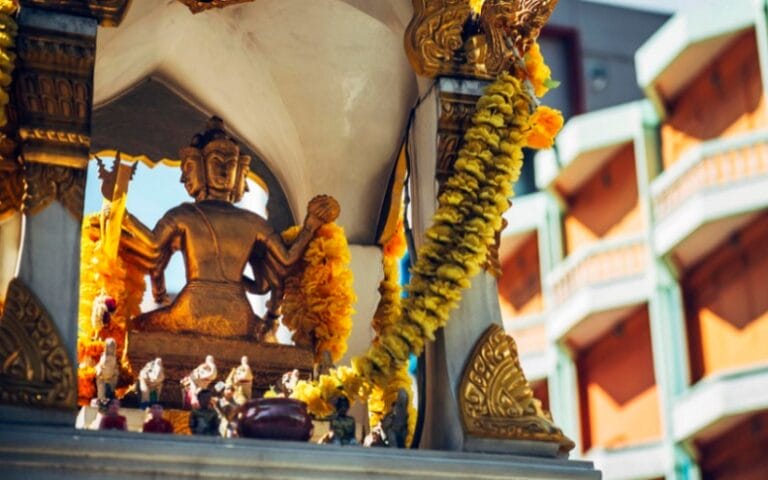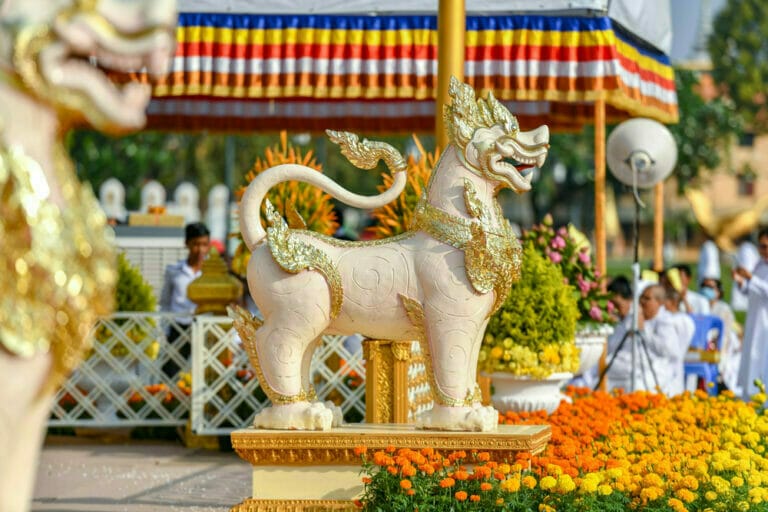Why Are Buddhists Vegetarian?
This article will help you understand some of the reasons behind Buddhism’s vegetarianism and how it can benefit your life.
Buddhism is seen as a way of life that promotes self-discipline, mindfulness and tolerance. It teaches people to live an ethical life, based on the “Middle Way”.
Also, Buddhist principles dictate that life has infinite value and shouldn’t be wasted.
Not consuming meat/slaughtering animals is, therefore, a practical way for individuals to follow these principles.
Why Are Buddhists Vegetarian?
A major sin for a Buddhist is to kill an animal or any other being. Does this mean Buddhists are forbidden to eat meat? Yes, it’s probably for this reason that most Buddhists are vegetarians.
Many Buddhists choose to be vegetarian or vegan in order to show respect for other living creatures on this earth and live by the Buddhist principles of ahimsa (non-violence).
Ahimsa refers to the principles of not killing anything unnecessarily (not even mosquitoes that bite us).
Buddhism’s vegetarianism may stem from three factors:
a) compassion, b) health, and c) preservation of nature and the environment.
However, it would be inaccurate to say that all Buddhists are vegetarians. In the Theravadist viewpoint, it is allowed to eat meat since the Buddha also ate meat.
It can be traced back to the Pali Sutras, which are one of the earliest Buddhist texts and contain numerous passages on eating meat.
In Mahayana Buddhism, on the other hand, it is believed that eating food containing animals will lead to suffering of the sentient beings. Thus, they tend to stay away from meat.
But again, it’s a personal choice that many Buddhists make. Some argue that Buddhism’s first teachings were strictly vegan, while others claim Buddha never intended for followers to abstain from meat consumption.
Tibetan Buddhism also promotes vegetarianism as a way to alleviate suffering for all sentient beings. But the Vinaya suttas (the monastic code) does explicitly allow monks to consume meat.
Furthermore, there is evidence to suggest that many tantric vows might require meat consumption for practitioners. So, the answer actually depends on the Buddhist school of thoughts and the belief system they adhere to.
Buddhism teaches asking yourself five questions about your food before eating it.
- 1. What kind of food is it?
- 2. What is the source of this food?
- 3. Why am I eating it?
- 4. What are the benefits of eating it?
- 5. How should it be eaten?
So long as the answers to the above questions are satisfactory, a Buddhist can eat whatever is on the menu.
Buddhist View on Vegan Diet (Veganism)
It’s a general belief within Buddhism that violence begets more violence. This is reflected in many Buddhist texts and teachings that talk about compassion for all living things.
By abstaining from animal products, you are able to show compassion towards all living things and yourself as well.
The Buddha also believed that all humans possessed an inner wisdom which could lead them to enlightenment.
Buddhism teaches that by being vegetarian, we can avoid harming other living beings and instead focus our energy on developing this inner wisdom within ourselves.
It is important to note that Buddhists vary widely in their diet as well. Diet restrictions mostly depend on a person’s geographical location or temporal period they live in.
Some schools of Buddhism do allow meat eating.
Many do follow a vegetarian diet or do not eat meat during certain times of the year. Some adhere to strict vegetarianism while others may not observe it as a strict rule.
Vajrayana school, for example, permits meat consumption as part of specific sacramental feasts.
The Buddhist faith emphasizes nonviolence toward all living things, including animals.
This has resulted in a particular form of dining within this society. Shojin Ryori, an Asian cuisine, is associated with Buddhism even though the name varies from country to country and with the foods served.

In China, Vietnam, Thailand and other Buddhist countries, going vegan or vegetarian isn’t just about reducing animal cruelty-it’s also about practicing mindfulness by living a sustainable lifestyle and being compassionate towards your body.
Regardless of where you fall on this spectrum, there are certain principles in Buddhism that seem to support vegetarianism as an ethical lifestyle choice.
However, vegetarianism maybe regarded as a choice, not an obligation in Buddhism.
Parting Words
Buddhists avoid eating meat primarily because it kills animals. In Buddhist thinking, killing an animal is essentially taking a life and there are some who believe that practicing this act constantly can lead to a lack of empathy for other living beings.
It’s important for a Buddhist to be mindful and self aware of how their actions may affect another person, animal, plant etc.
Lastly, while it is an excellent way to live by, it is not mandated by all Buddhist groups. But it certainly illustrates the respect Buddhists have for both humans and animals.







